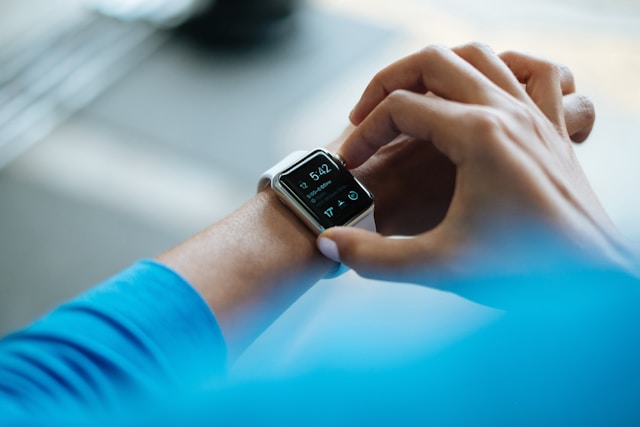Table of Contents
The best medicine might not be a pill, but a tiny piece of tech. Yup. A quiet revolution in medical technology is empowering us to take control of our health like never before. This article explores how innovative devices, from smartwatches to at-home diagnostics, are pivoting healthcare from a reactive model to a proactive, preventative approach.
The path to a healthier life has often been seen as a series of reactive steps (a doctor’s visit when you’re sick, a prescription to treat a symptom). But the biggest shift in modern wellness isn’t a new drug or even some diet fad. It’s the move toward proactive, preventative care. That’s right. A wave of medical technology is driving this shift by giving us immediate access to health data, enabling us to control our health and make well-informed decisions like never before. With wearable technology and smart household appliances, technology is no longer only for emergencies but is becoming a necessary component of a regular, healthy routine. Let’s dig deeper into this idea.
The Connected Home For Health
Today, the tech is everywhere. We cannot escape it. We use it, look at it and now wear it. Wearables are taking health monitoring to a whole new level. Smart scales aren’t just about weight anymore; a lot of them can now tell you a whole bunch of stuff about your body’s makeup. Like how much muscle you’ve got, your bone density and even your body fat percentage. Then you have smart blood pressure cuffs and thermometers that can automatically send data right to an app, creating a health record that’s super easy to share with a doctor.
The development of these consumer-friendly health tools is a direct result of the big-time innovation happening in the medical sector. The entire process of designing and making these pretty sophisticated devices, you know, from the first idea to the final product that ends up on a store shelf, is what a specialized medical device development company, like HaA Product Development does. These companies are a backbone of the whole health tech revolution. They combine some seriously good engineering with a deep understanding of human health to create products that not only work well, but are also easy for a regular “everyday Joe” person to use. Without their work, a lot of these life-changing technologies would just sit there in a lab somewhere, collecting dust.
The Wearable Revolution: Putting Health Data In Your Hands
The most visible change has to be the rise of wearable tech. You see smartwatches and fitness trackers everywhere you look. But let’s be honest. Their role has gone way beyond just counting steps, right? Today’s devices are pretty sophisticated health monitors that give us a constant stream of data about our bodies. Like heart rate monitoring, for instance. A lot of devices now track your heart rate all day long, which gives you a ton of insight into things like your stress levels, how you’re recovering from a workout and even your overall heart health. Some of the really advanced models can even take an on-demand electrocardiogram (ECG). That’s a real game-changer, giving folks the ability to catch potential issues way early.
And don’t get me started on sleep tracking. That’s another area where wearables have made a huge impact. By keeping an eye on your sleep stages and how you sleep, these little gadgets can help you figure out your sleep quality and then help you find ways to make it better, you know, like maybe setting a more consistent bedtime or turning off the phone before bed. This is a level of knowing yourself that was just impossible for most people only a few years back.
Remote Care: From Patient To Partner
It’s safe to say the pandemic changed everything. That includes not just medicine, but medical technology as well and it’s changing the dynamic between patients and healthcare providers. These technologies let doctors keep an eye on a patient’s health from a distance, giving them care and cutting down on the need for in-person appointments.
For folks with ongoing conditions like diabetes or high blood pressure, this is a lifesaver. Remote monitoring devices can track blood sugar levels or blood pressure readings and then automatically send the data to a healthcare provider. This lets doctors change up a treatment plan right away, way before a patient’s next scheduled appointment. This proactive way of doing things means better health outcomes and gives patients a bigger say in their own care. It’s also making good healthcare a whole lot easier to get for people who live out in the country or just have a tough time getting around.
The Future Of Proactive Wellness
The medical technology of today is, well, just the beginning. The next wave of new stuff is already here. You have things like AI and personalized medicine. Artificial intelligence is being used to look at huge amounts of health data from all those wearables and monitoring devices to give you personalized health insights and even predict health alerts. It can spot trends and risks that a regular person or even a doctor might not catch, helping people make smarter choices for their lifestyle. This isn’t about taking doctors’ jobs; it’s about giving them a powerful new tool so they can give better, more precise and preventative care. It’s a future where health isn’t just something we go after when we’re sick, but something we actively manage every single day


